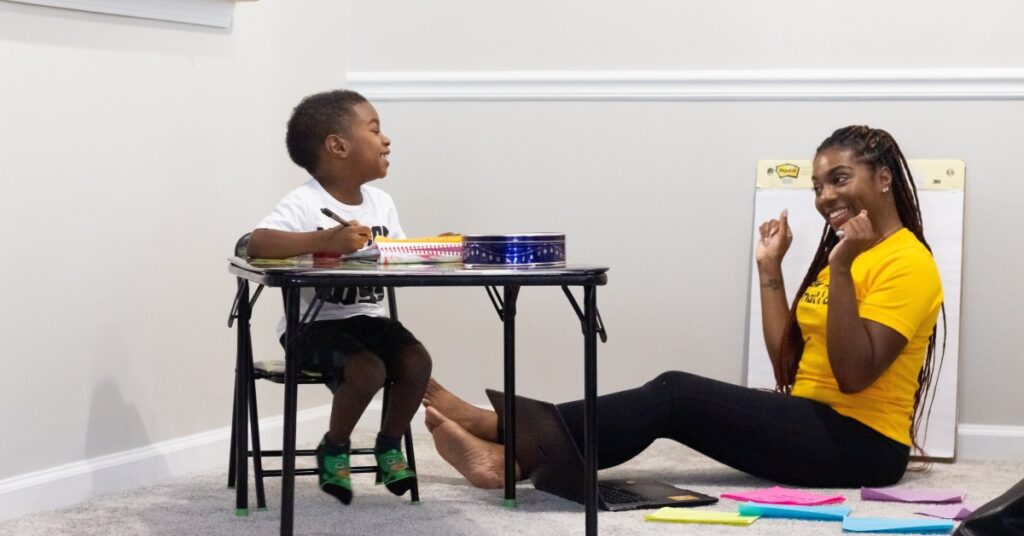
What Is a Master of Library and Information Science?
all LIS professionals must be information-literate. They can work in [...]
Every teacher has a first year, and mine went about as well as expected. It only took a day for me to call my wife during lunch and confess I had no idea what I was doing. I’ve heard of people wanting to quit after their first week; I guess I was more determined than most.
But, I didn’t want to quit; I wanted to get better because I loved my job.
I became a special education teacher a different route than most. I didn’t realize I wanted to be a teacher until after I graduated with a BA in Psychology.
After a brief stint as a substitute, behavior therapist, and musician, I recognized my passion for teaching. What I didn’t understand was that wanting to spend my day with students all day was only the first hurdle.
So you want to be a teacher? Good for you. Here are some things to expect in your first year of teaching, and get ready because it’s about to get real.
I don’t care how good you think you are. Teaching is one of the most humbling professions when you are first starting. All the classes and fieldwork experience pale in comparison to having your students come into class the first day. Don’t be surprised if you are questioning your life choices. We’ve all been there.
Teaching special education comes with its challenges, but if you want to be a good teacher, your tears of frustration will turn into tears of joy after you observe your students use a strategy that you taught them.
One of the hardest parts about the job is feeling helpless when things happen that are out of your control. For example, when your student is involved in a custody battle or there are apparent mental health issues that have nothing to do with teaching. Push through and love your students as best as you can. Because despite all the failure and loss that you observe, sometimes you see them win, and it is beautiful.
I’m not crying; you are.
| University and Program Name | Learn More |
|
Merrimack College:
Master of Education in Teacher Education
|
You have to understand that the teacher down the hall with their bulletin board just so, and classroom library well stocked with the most exceptional children’s literature has been teaching for 20 years. Don’t get down on yourself for not having everything together on your first day, week, or year. You are still trying to figure out the safest place to go to the bathroom.
Depending on what kind of support you provide as a special education teacher, you are the one who is going to figure out how to adapt the curriculum for students with disabilities. That could be in the co-teaching role (pairing with a general education teacher) or a self-contained classroom (usually with a paraprofessional). It is going to take some time to learn the curriculum yourself.
When I was a self-contained special education classroom teacher, I would beg the closest general education teacher to show me how they would teach a specific standard. Once I learned the content myself, then I was able to know how to adapt it to my students. That process is going to take some time. Remember, teaching is a marathon, not a sprint.
Especially that first year, you are going to spend an excessive amount of time preparing lesson plans. If your school doesn’t require you to have lesson plans because you are a special education teacher, don’t listen to them. The best way to be a fantastic teacher is to overprepare. And your overpreparation is never wasted because you can learn from your mistakes. We teach our students to have a growth mindset. A mistake is just an opportunity to try again next time.
You’ll spend your weekends planning for the week and roaming the budget variety stores for cool trinkets and manipulatives to use with your students. I’ve heard some teachers complain about how much they spend on their classrooms. You know what? Get over it. That is what good teachers do. They go above and beyond because their students deserve it.
Even the most seasoned educators spend time on the weekends preparing lesson plans. The best thing to do is schedule accordingly. Block out time on your calendar. I used to spend a few hours on Sunday afternoon. Before the weekend fades away, you can shore up your plans before relaxing with your favorite TV show or book.
Being a special education teacher is isolating. If you teach in a self-contained classroom, you often are the only one in your school. You have to fight against the feeling that you are alone. It is easy to think that no one cares about you when your classroom is at the back of the school.
One of the best ways to combat this is to make some friends who are general education teachers. That is easier said than done, but don’t forget that you are a real teacher too. Many times, general education teachers have no idea what you do. No one is going to tell them for you. You are going to have to do it.
Include yourself in your school community as best as you can. It may take more than your first year, but it will be worth it in the long run.
Stick with teaching. It is one of the most rewarding things you will ever do. Even on the hardest days, I loved it. Have confidence that you are making a difference by being a consistent positive (and quite possibly the only) influence on their lives.
If you love being with students, watching them grow, and make mistakes, you are in the right profession. If you don’t like students, you may want to go back to the drawing board.
Questions or feedback? Email editor@noodle.com

all LIS professionals must be information-literate. They can work in [...]

Elective courses can customize your MLIS degree to a career [...]

Do you intend to work in your community's public library [...]

For decades now, libraries have been attuned to new developments [...]

A more diverse teacher workforce could provide a key to [...]
Categorized as: Special Education, Education & Teaching